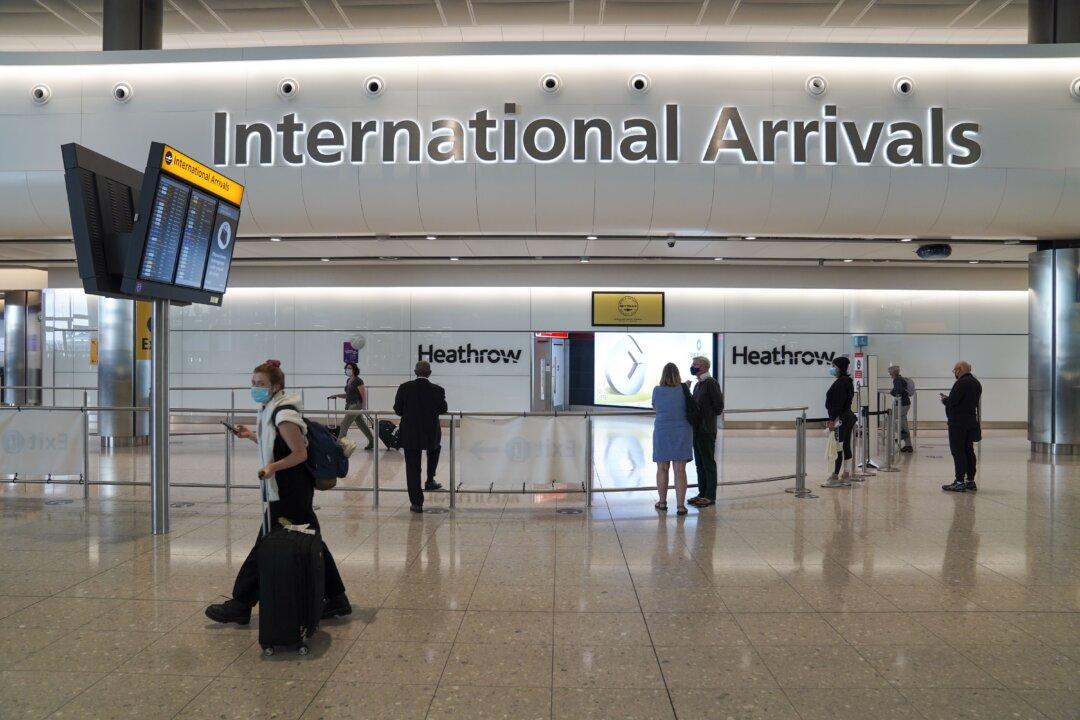
Passengers in the international arrivals hall at Terminal 2 of London Heathrow Airport, in London, UK, on July 29, 2021. Steve Parsons/PA
Ministers have abandoned plans for an “amber watchlist” as Prime Minister Boris Johnson promised to keep travel rules as simple as possible.
The government had been considering the new category for nations at risk of being moved into the red group under the traffic light system.




